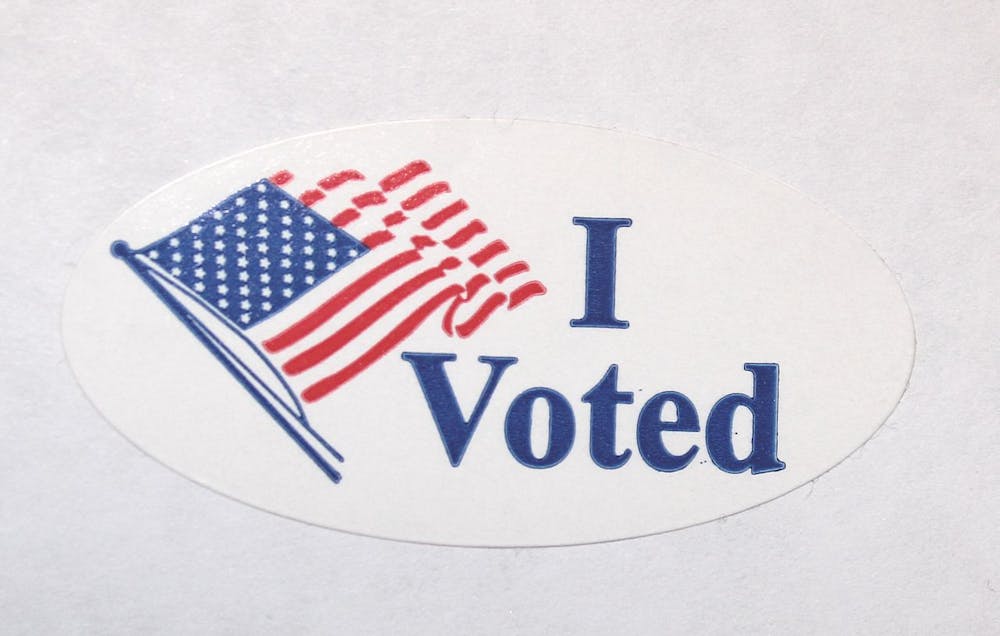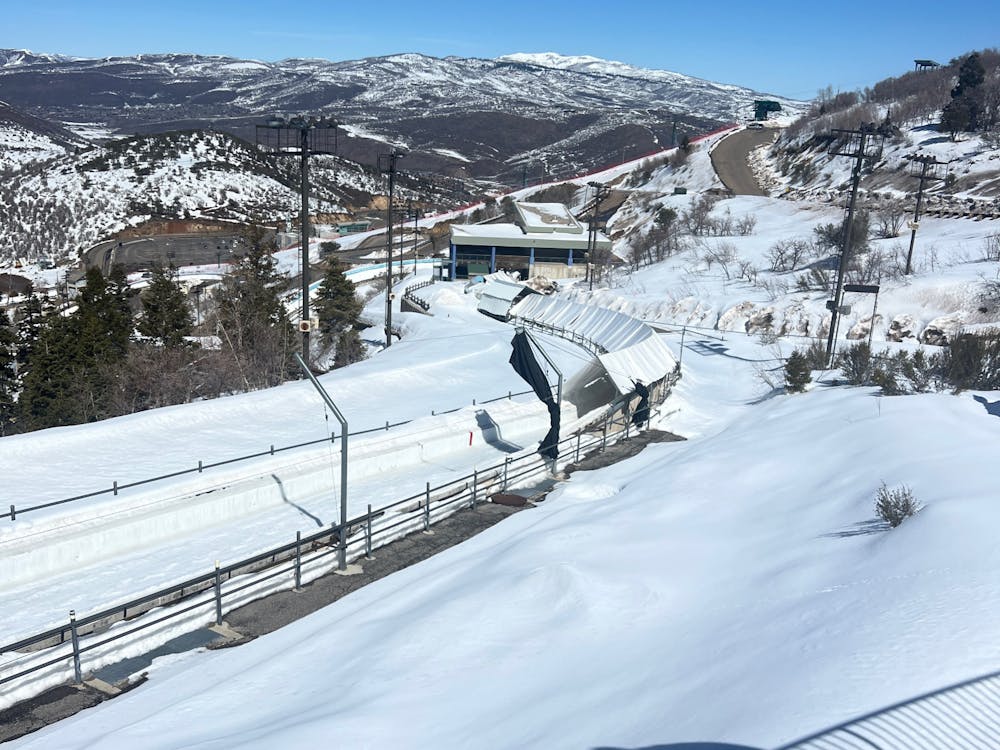I couldn’t shake the feeling of utmost distress as I scrolled through photos of “Trump 2020” flags waving in front of my early voting location, the Fairfax County Government Center in Virginia. Trump supporters had gathered only 100 feet away from the building and were chanting “four more years” as voters made their way into the polling center.
After six months of a pandemic, racial unrest and overall political upheaval, I was disappointed to see some Americans turning to intimidation during an already contentious election cycle. This example of clear, though somewhat minor, intimidation lends itself to a broader discussion of voter suppression in the United States and the threat it poses to our democracy.
Voter suppression includes any tactic used to deter, dissuade or discourage certain populations from voting. Voter suppression takes many forms, whether it be long lines at polling locations in predominantly Black and Latinx communities, like what occurred during Georgia’s June primary; voter purges where states remove eligible voters from voter rolls for unwarranted reasons; or felon disenfranchisement.
Many of the most common voter suppression strategies are rooted in racism. Strict voter identification laws only permit those with government-issued identity documents (IDs) to vote, excluding 21 million Americans, many of whom are minorities. Some states, such as Texas, allow for handgun licenses to be used in place of a government-issued ID but will not allow college students to use their school ID from a state university. In 2018, over 80% of handgun licenses in Texas were held by white Americans, while over half of the student body at Texas state universities were people of color. These clear distinctions in voter ID laws are intentional, and in a national election they work to acutely reduce voter turnout in communities of color.
In states where the voting process is made easier, higher voter turnout is recorded. Minnesota holds the record for the most voter turnout of any U.S. state, with a substantial 65% of votes cast early in this year’s August primary. One of the main reasons for this is how easily accessible voting is; in 1974 Minnesota became the second state in the country to allow same-day voter registration. The state has also passed a no-excuse absentee voting law which allows all Minnesotans to cast their ballots early by mail. Minnesota’s comprehensive voting laws encourage high voter turnout and serve as a strong example of what democracy should look like in every U.S. state.
As a current intern for Students for Justice, a nonpartisan initiative of the Center for Common Ground aimed at tackling voter suppression and apathy, I have encountered some of these problems. During a recent phone-banking session with potential voters, one man dejectedly informed me that though he wished to, he could not vote in the upcoming election because he was a felon. This story speaks to the broader issue of voter suppression that has affected millions of Americans.
This year we have all seen and experienced firsthand the crucial role government plays in making decisions that drastically affect our lives. From mask mandates to travel restrictions to COVID-19 testing capabilities, this pandemic has shown how the actions of our government officials impact our everyday lives, even if we aren’t thinking about it.
This is why every Hopkins student and every young person in the U.S. must vote in the November election. It may sound cliche to say your vote is your voice, but in an often polarizing political sphere, your vote truly is one of the only ways in which you can express your opinions and make your needs known. In using voter suppression tactics, this country has made voting a privilege rather than a right. If you’re fortunate not to experience harsh restrictions when voting, then I urge you to acknowledge this advantage by voting and helping others vote as well.
One of the most important ways you can fight voter suppression is by educating yourself on voting information and sharing that knowledge with others. Within the next few days, check your registration status, familiarize yourself with your state’s election information and deadlines and decide how you will be casting your ballot. Once you have a voting plan, reach out to friends, family members, community groups and everyone else in your network to make sure they are registered and ready to vote. You can also go one step further by volunteering with organizations that fight voter suppression like Reclaim Our Vote or applying to work at a polling station.
Furthermore, as many Hopkins students remain in their hometowns this semester, voting in the upcoming election will be more convenient for most. Absentee voting is not your only option this year; you should also consider early voting or voting in person on Election Day.
I like to think that for every person showing up to polls around the U.S. to intimidate prospective voters, there are five or even 10 more individuals devoting their time to helping others vote. Our democracy relies on all people being able to vote safely and securely, and that lofty goal starts with your vote in this election.
Maiss Mohamed is a junior majoring in Public Health from Northern Virginia. She is an intern with Students for Justice.





